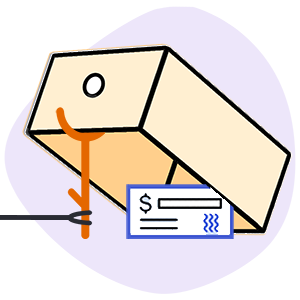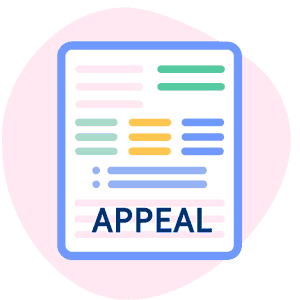TRPN: How to Terminate Discount Contract

Three Rivers Provider Network (TRPN) has a deservedly terrible reputation for the duplicitous way in which TRPN ropes providers into its noxious discount reimbursement contract.
Today, we share information on how providers ensnared by TRPN can extricate their practices from the network’s so-called “agreement.”
We also name the claims administrators known to have profited by doing business with this unconscionable network entity. TRPN is not alone in its abuse of providers through this scheme. TRPN is enabled by its customers: claims administrators that apply the TRPN discount to providers’ bills for treating injured workers.
How To Terminate TRPN Agreement
TRPN has been called out by the American Medical Association (AMA), the California Medical Association (CMA), the National Association of Social Workers (NASW), and many more for ugly practices — including sending unsolicited checks (that look very much like payments for medical services) to providers; when the provider deposits the check, TRPN considers the provider to have agreed to the TRPN contract.
Unsurprisingly, providers who find themselves subject to TRPN discounts report never having knowingly consented to the “agreement.”
To avoid this unfortunate fate, providers can take the following steps:
- Never deposit a check from TRPN.
- If your practice deposits a check from TRPN, return the funds and notify TRPN in writing within 90 days that the check was deposited in error, and that you did not knowingly “agree” to the agreement (Keep a record of the correspondence).
- If your practice deposited a TRPN check more than 90 days ago, email TRPN at lconrad@trpndirectpay.com with the following language:
Our practice demands that TRPN terminate our alleged agreement immediately.
Our practice did not knowingly agree to participate in TRPN nor knowingly consent to TRPN’s contractual terms. The “participation payment” sent to the practice was deposited in error, as it seemed to all appearances to be a payment for medical services — a practice described by the California Medical Association (CMA) as a “deceptive business practice” by TRPN.
Further, we believe the TRPN agreement violates California Labor Code Section 4609.
§4609(a) states: “...every arrangement that results in any payor paying a health care provider a reduced rate for health care services based on the health care provider’s participation in a network or panel shall be disclosed by the contracting agent to the provider in advance and shall actively encourage employees to use the network…”
§4609(b)(5) states that discount contracting agents must “Allow providers, upon the initial signing, renewal, or amendment of a provider contract, to decline to be included in any list of contracted providers that is sold, leased, transferred, or conveyed to payors that do not actively encourage the employees to use the list of contracted providers when obtaining medical care…”
In addition to the above, the TRPN agreement violates provisions of §4609(b)(2), §4609(b)(3), and §4609(b)(4).
This office does not agree to and has never knowingly agreed to participate in TRPN.
We insist TRPN waive the 6-month termination period and consider this message our formal notice of termination, effective immediately.
Non-California practices may also use the above language, minus the references to California Labor Code and CMA:
Our practice demands that TRPN terminate our alleged agreement immediately.
Our practice did not knowingly agree to participate in TRPN and did not knowingly agree to TRPN’s contractual terms. The “participation payment” sent to the practice was deposited in error, as it seemed to all appearances to be a payment for medical services.
This office does not agree to and has never knowingly agreed to participate in TRPN.
We insist TRPN waive the 6-month termination period and consider this message our formal notice of termination, effective immediately.
daisyBill cannot guarantee that TRPN will release any particular practice from their “agreement.” However, TRPN has released at least one practice at a representative’s request. TRPN may know the extremely shaky legal ground on which its “agreement” rests and prefer to pick on providers who don’t fight back. Don’t be one of them!
Claims Admins Using TRPN Contractual Discount
Claims administrators that apply TRPN discounts to providers’ bills are complicit in the network’s schemes.
Below, we name every insurer, self-insured employer, and Third-Party Administrator (TPA) that has applied the TRPN discount to a daisyBill provider’s bill since 2017. We can’t say whether these claims administrators know about TRPN’s methods — but about 90 seconds of Googling reveals the facts.
If these claims administrators weren’t aware before, there’s no excuse now.
Claims Administrators | |
Alaska National Insurance |
Intercare Holdings Insurance Services, Inc. |
Allianz |
Liberty Mutual Insurance |
Berkshire Hathaway Homestate Companies |
LWP Claims Solutions, Inc. |
Broadspire Services, Inc. |
Markel First Comp Insurance |
Cannon Cochran Management Services, Inc. |
Matrix Absence Management |
Chubb Group of Insurance Companies |
Midwest Insurance |
Church Mutual Insurance Company |
Mitsui Sumitomo Marine Management (U.S.A), Inc. |
City of Santa Monica (CA) |
National Interstate Insurance |
CorVel |
Omaha National Group |
County of Sacramento (CA) |
Pacific Gas & Electric |
Employers Compensation Insurance Company |
PMA Companies |
ESIS, Inc. |
SafeCo Insurance |
Farmers Insurance |
Sedgwick Claims Management Services, Inc. |
Gallagher Bassett Services Inc. |
Self-Insured Schools of California (CA) |
Guard Insurance Group |
The Hartford |
Hazelrigg Claims Management Services |
The Walt Disney Company |
Helmsman Management Services LLC |
Tristar Risk Management |
Insurance Company of the West |
Zurich Insurance North America |
Many providers maintain lockboxes to deposit checks and do not personally review every check sent to their practice.
It is easy for TRPN’s Trojan horse of a “participation payment” to make it into a practice’s accounts unnoticed. We cannot allege any specific crime by TRPN — that’s for prosecutors to determine — but even the most underdeveloped sense of ethics can recognize TRPN’s business model for the puddle of dumpster runoff it is.
Claims administrators should not agree to sully themselves by grasping providers’ revenue using TRPN Direct Pay schemes. It’s beneath even the least scrupulous among you.
* Correction, August 17 and 29, October 6 2023: An earlier version of this article contained a factual error regarding TRPN’s ownership that has since been corrected.
Workers’ comp billing requires specialized expertise. daisyCollect agents use our advanced software (and unmatched experience) to protect your practice’s bottom line. Request a demo below:
REQUEST DEMO
DaisyBill provides content as an insightful service to its readers and clients. It does not offer legal advice and cannot guarantee the accuracy or suitability of its content for a particular purpose.



.gif)
.gif)